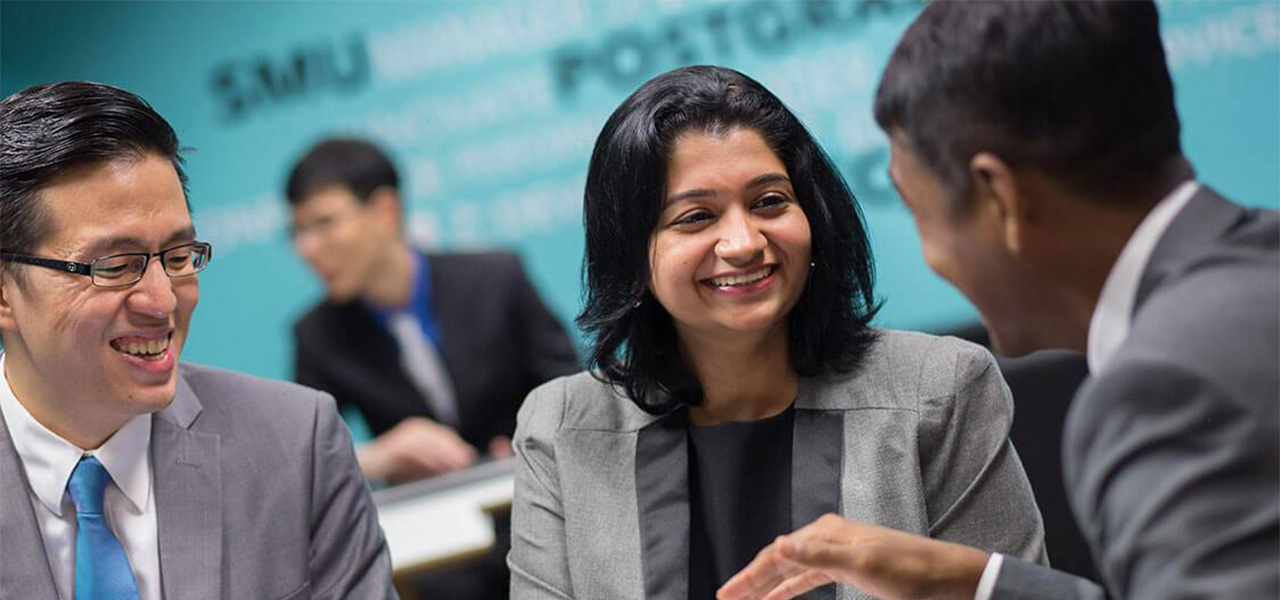By eFinancialCareers
As sustainability continues its soar to prominence in the corporate sphere, many in finance are raring to seize opportunities in the burgeoning space to do both well and good.
Jolene Gan is among them. The investment banking senior analyst, who oversees energy transition, sustainable finance strategies and green debt products, started her career in treasury financial control before a pivot that charted a new path in sustainable finance.
The catalyst? A brochure on a colleague’s desk for a Master of Science in Applied Finance (MAF) from the Lee Kong Chian School of Business at Singapore Management University (SMU).
A strategic choice

At the time, Gan – an accounting and finance graduate working her first job at a Singapore bank – had begun to notice the regional transition to low-carbon, circular and resilient business models, and burgeoning demand in private markets for impact and green investing.
“The growing emphasis on ESG considerations, especially in Asia, has not only shaped industry dynamics but also presented lucrative career avenues,” she says.
“Embracing this trend, I sought to strategically position myself to capitalise on emerging opportunities, while driving positive environmental and social impact.”
Among the business schools, SMU proffered unique value-add with specialisation tracks and field-specific elective modules, as well as practical exposure through projects and internships, promising valuable real-world experience.
“Particularly in the current climate of economic uncertainty and specialised expertise, an in-depth exploration of applied financial concepts can substantially augment one’s professional arsenal,” Gan says.
Taken with the idea, she discussed pursuing a Master’s with her managers and applied to SMU, convinced it offered the most enriching curriculum.
Building acumen
“In SMU, Gan built up a powerful arsenal of targeted knowledge to chart a path in green impact investments.
She strategically selected electives including Sustainable Finance & Alternative Investments, Project & Infrastructure Financing, Private Equity & Venture Capital Investing, and Real Estate Investments and Finance.
Insights from these modules, which integrate real-world projects into learning material, were highly applicable to her work – particularly once she landed a one-year ESG graduate fellowship at Deutsche Bank as part of the MAF programme’s internship component.
At the bank, Gan contributed to ESG deal structuring and researched advancements in climate science.
“I would not have had the opportunity to pursue the fellowship had I not been enrolled in SMU’s programme,” she says.
A structured programme schedule also enabled her to better juggle work responsibilities. “I coordinated my workdays to align with class schedules during the daytime and evenings.”
Groundbreaking opportunities
Her efforts paid off. Gan secured a role at a large Chinese bank soon after completing her internship.
On her successful pivot, she reflects: “The opportunity to apply the financial expertise gained from SMU’s MAF programme to real-world scenarios, particularly in the context of green and transition financing, is immensely appealing.”
Beyond research and structuring, she has gained opportunities at work to design sustainable financing frameworks, conduct transition planning, and provide strategic client support.
“My qualification serves as a testament to my expertise, facilitating my advancement within the organisation and enabling me to undertake impactful work that resonates with my values,” she adds.
To aspiring candidates, her advice is simple but highly practical: embrace learning opportunities and leverage robust career support to maximise professional growth.
“Discipline, determination, and proactive engagement will undoubtedly pave the path to success within the programme and beyond.”
This article was originally published on eFinancialCareers (July 2024).





